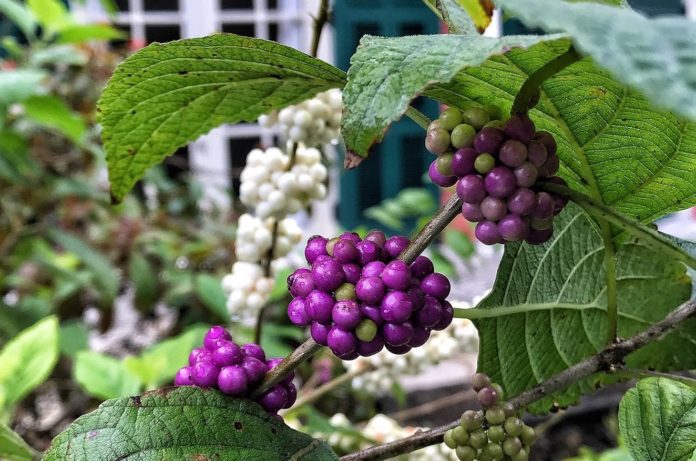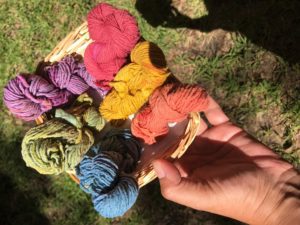
|
Getting your Trinity Audio player ready...
|
Since the onset of human civilization, farming has been a key developmental factor of human settlements. However, as food became an everyday commodity in developed societies, the importance of farming lies somewhat distant from what it meant to our ancestors. To challenge this idea, Miami plans to host the first annual “Farmers Month” this November 2022 to celebrate our farmer friends throughout the Redlands.
The entire month will be dedicated to special deals and experiences at South Miami-Dade farms and related businesses. As agrotourism grows in popularity, Miami has positioned itself as a key destination for tourists visiting South Florida. People love sourcing organic food, such as mamey, sapodilla, and lychee, which are rarely found in other parts of the country. These ingredients can all be placed into decadent meals, which continue to excite tourists and establish Miami as a hotspot for good food.

The Deering Estate is proud to be one of the participating partners and will be offering a new event for guests to enjoy. Throughout weekends in November, visitors will be able to take part in Ethnobotany Tours. This field of study focuses on the use of native plants by a particular culture or region. As part of the current Nature Preserve Tour, guests will now learn about Ethnobotany as they travel through the different Tropical Hardwood Hammocks located at the Estate. With the guidance of a Deering Estate Naturalist, visitors will be exposed to the diverse plants that surround the area. This innovative experience encourages people to learn about the different uses plants have in South Floridian cultures, including indigenous ones. These ancestors utilized their resources to their full potential, applying these plants to any necessity. It might be surprising to find out that these plants were used as food, clothing, medicine, and even shelter.
Below is a Q&A with Diana Eusebio, an Artist-in-Residence at The Deering Estate, explaining her own ties to Ethnobotany. Due to her indigenous Peruvian Quechua heritage, Eusebio has oftentimes seen the magic of natural dyes from native plants:
Q: What inspired you to start using natural plant dyes for your artwork?
A: My family is Peruvian-Dominican-American and of Quechua origin (Indigenous Peoples of Peru). Historically, textiles were of value to the Quechua people, however, European colonizers valued goods such as gold or emeralds more, therefore they left traditions such as natural dyeing, embroidery, and weaving practically untouched and now they’re some of the only indigenous traditions that have survived colonization in Peru. I think there is beauty in the fact that these techniques carry all their history with them. I began working with these traditional natural dyeing techniques in hopes of preserving traditions that have been historically overlooked. I believe using them in my practice is more sustainable for our planet.
Q: Do you feel that it is important to support our local agricultural businesses?
A: I believe that all life is interconnected and that the “Pachamama” (the Quechua word for “Mother Earth”) is to be respected. When sourcing what we eat, and we wear, a sacred balance needs to be maintained for our natural environments, and even our own human lives, to be preserved and thrive. By supporting our local agricultural businesses and small-scale farmers who practice organic and regenerative methods of growing food, agriculture and nature can coexist in harmony.

Q: How has working with the environment made you feel closer to your heritage?
A: Earlier this year, I traveled to Peru and Mexico to research indigenous textile techniques, such as natural dyeing with Indigo, Pericon, Brazilwood, and Cochinilla. After returning, and throughout my year-long residency at the Deering Estate, I’m working with Conservation and Research Specialists from the Miami Dade Parks, Recreation, and Open Spaces Department to research and collect plants that are native to Miami and the Caribbean. So, by working with these natural dyes I get to connect with a lot of different intersections in my Peruvian-Dominican-American heritage. For example, lately, in my studio at The Deering Estate, I’ve been dyeing fabrics a vibrant orange with the seeds of the Achiote plant which is native to Miami, Peru, and the Dominican Republic. Peru is the number one exporter of this plant to this day. I’ve interviewed family members on my Peruvian side and heard great stories about how they would use the seeds for cooking. Historically, it was also used medicinally by native peoples in Peru and there is even an origin story that relates this plant to the beginning of life and connections between the human and the divine. Researching these stories has been really inspiring to me and my work.
Q: Through your project, do you hope to motivate others to switch to a heavier reliance on nature?
A: Besides designing clothing using natural dyes, I have also begun teaching a series of natural dyeing workshops at my studio at The Deering Estate. Holding these workshops close to Palmetto Bay, Cutler Bay, and Goulds is important to me because they are the neighborhoods I grew up in and my family and I call them home. I hope that the workshops and my fashion work can foster deeper connections between Miami’s communities and nature.
Make sure to visit Deering Estate this November to dive into the natural world of Ethnobotany. These tours are being held every Saturday and Sunday at 12:30 PM. For more information please visit the link here: https://www.miamiandbeaches.com/offer/deering-estate-ethnobotany-tours-experience/615000.





